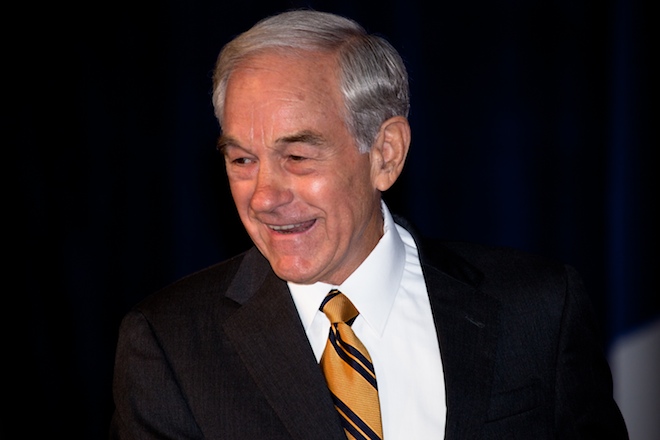Ron Paul is not the same candidate he was in 2008. He’s got more money, his ads are slicker, and his organization has people on the ground in caucus states leading all the way up to Super Tuesday on March 6. But reports that he may be in for the long haul or, as bolder predictions have suggested, could force a brokered convention by racking up a significant number of delegates, are greatly exaggerated.
What Ron Paul has going for him are his famous core of enthusiastic supporters and the steady stream of campaign funds that comes with that support. He has another advantage, however, that is probably being overstated: proportional allotment of delegates.
After the 2008 election, the RNC changed its primary rules. Starting in 2012, states with primaries (not caucuses) before April 1 must allot delegates according to some manner of proportional system based on the percentage each candidate receives. On its face, it would seem that someone like Paul, who could conceivably come in a distant third in most races after a good showing in Iowa, might rack up a significant number of delegates. But when you look more closely, the likelihood is really low.
Despite the rule change, proportionality is generally overstated. “We’re just not seeing that much of a change from what we saw in 2008” when John McCain had the nomination wrapped up in February, said Josh Putnam, a political scientist who runs the blog FrontloadingHQ. “In terms of the proportionality requirement, it probably won’t have that much of a say in this.”
The issue is that even though the requirement changed, it left up to states how to fulfill the proportionality requirement. States can opt to only allot a small number of their delegates proportionally. Right now, not all states have even hammered out how they will be divvying up delegates. Outside of Iowa, Paul polls pretty low in most early primary states — far from enough to get a game-changing number of delegates. Moreover, a large number of early states have caucuses instead of primaries. Paul is putting a lot of effort into those states, with teams on the ground in virtually all early caucus states. And while those are proportional in theory, delegates aren’t officially divided until each state’s convention, which take place later in 2012, after a nominee has already been decided.
Paul could have a big night in Iowa. The biggest consequence of that would mean Newt would have a slower start than he’d hoped. But Paul has few prospects after Iowa. When you crunch the numbers, it’s just not there.









